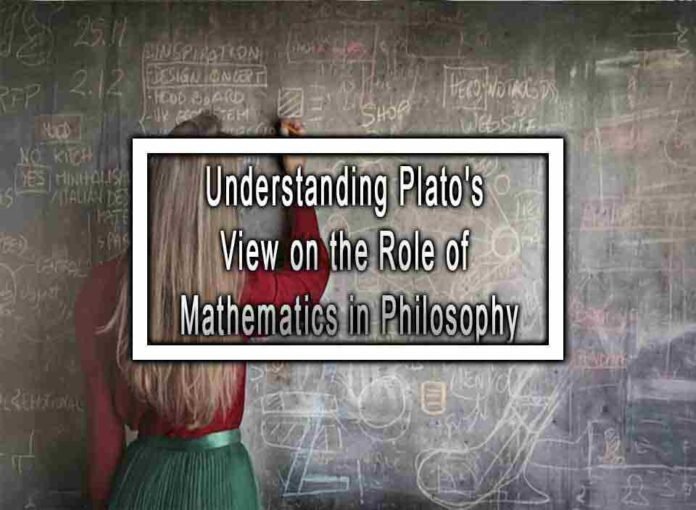Plato, the ancient Greek philosopher, held a profound view on the role of mathematics in philosophy. In his philosophical works, particularly in his dialogues “Meno,” “Phaedo,” and “Republic,” Plato explored the significance of mathematics in understanding the nature of reality, knowledge, and the human soul. Here are the key aspects of Plato’s view on the role of mathematics:
1. Epistemology and Recollection:
In Plato’s theory of knowledge, he posited that human souls possess innate knowledge that they recollect through the process of learning. He believed that the human soul existed in a higher realm before being embodied and thus had knowledge of abstract concepts, including mathematical truths. For Plato, mathematics served as a means of recalling these pre-existing truths, leading to genuine knowledge.
2. Mathematics as a Path to Universal Truths:
Plato considered mathematics as a pure and unchanging discipline that deals with universal truths. Mathematical objects, such as numbers and geometric shapes, were seen as abstract entities that existed independently of the physical world. By studying mathematics, philosophers could access these timeless and universal truths, providing a foundation for philosophical inquiry.

3. The Theory of Forms:
Plato’s Theory of Forms, presented in his dialogue “Phaedo” and “Republic,” posits that the physical world is a mere reflection of a higher realm of ideal Forms or Ideas. Mathematics, according to Plato, is a prime example of this higher realm. Mathematical objects, such as perfect circles or triangles, exist in the world of Forms and serve as the ultimate reality of their imperfect physical counterparts.
4. Role in Moral Education:
In “Republic,” Plato discussed the importance of mathematics in the education of the guardians, who were meant to be the ideal rulers of his envisioned society. Mathematics, alongside music and gymnastics, played a crucial role in shaping the souls of the guardians and developing their reasoning abilities, virtues, and sense of harmony.
5. Dialectic and Mathematics:
Plato’s dialectic, a method of philosophical inquiry that seeks to discover underlying truths through a process of questioning and examination, is closely related to mathematics. Dialectic and mathematics share a common pursuit of abstract reasoning and a search for universal principles.
6. Foundations of the Physical Sciences:
Plato considered mathematics as the foundation of the physical sciences, providing a basis for understanding the laws and patterns governing the natural world. He saw mathematics as a tool to grasp the order and regularity present in the cosmos.
In summary, Plato viewed mathematics as an integral part of philosophical inquiry and a gateway to accessing universal truths and knowledge. Mathematics played a central role in his metaphysical and epistemological theories, forming a critical aspect of his philosophical framework for understanding the nature of reality and the human soul.











